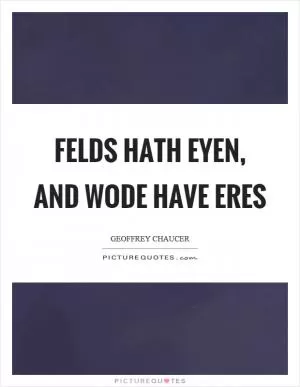Eke wonder last but nine deies never in toun

Eke wonder last but nine deies never in toun
The phrase "Eke wonder last but nine deies never in toun" is a line from Geoffrey Chaucer's famous work, "The Canterbury Tales." Chaucer is widely regarded as one of the greatest English poets of the Middle Ages, and his work is considered a cornerstone of English literature. "The Canterbury Tales" is a collection of stories told by a group of pilgrims on their way to the shrine of Thomas Becket in Canterbury Cathedral.In the context of this line, Chaucer is highlighting the fleeting nature of wonder or amazement. The word "eke" means also or in addition, suggesting that wonder does not last long in town. The phrase "but nine deies" indicates a short period of time, emphasizing the transitory nature of wonder. Chaucer is reminding his readers that moments of wonder or amazement are often brief and fleeting, and should be cherished while they last.
Chaucer's use of language in this line is typical of his poetic style, which is characterized by its rich imagery, vivid descriptions, and keen observations of human nature. Chaucer was a master storyteller, and his ability to capture the complexities of human experience in his writing is what has made his work endure through the centuries.












 Friendship Quotes
Friendship Quotes Love Quotes
Love Quotes Life Quotes
Life Quotes Funny Quotes
Funny Quotes Motivational Quotes
Motivational Quotes Inspirational Quotes
Inspirational Quotes